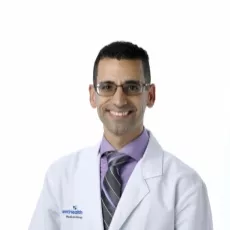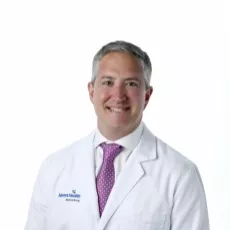
We’ll Help You Look and Feel Your Best
We understand that plastic and reconstructive surgery is about much more than appearances — it’s about reclaiming your body and feeling comfortable and confident. Whether you’re seeking breast reconstruction after cancer treatment, a tummy tuck or another procedure, you deserve to be taken care of by true experts.
Each of our plastic and reconstructive surgeons in Orlando is board-certified, exceptionally skilled and can help you achieve the results you’re hoping for. Our team even includes one of the few surgeons in Florida who is fellowship-trained specifically in body sculpting after weight loss. For the most specialized and personalized care, you’ve come to the right place.
Surgical Specialties for Aesthetics and Reconstruction
Learn more about the procedures we can provide after treatment for cancer, weight loss or electively to help you reach your goals.
Meet Our Surgical Team
Our board-certified surgeons are experts in their field and dedicated to helping you look and feel your best at every age and stage of health.
Meet Our Advanced Practice Providers
Our team of physician assistants and registered nurses is here to help guide your care while keeping your whole health in mind.
Expert Plastic Surgery Near You in Orlando
AdventHealth Medical Group Plastic and Reconstructive Surgery at Innovation Tower

Your Financing Options
If your plastic surgery isn’t covered by insurance, you have options. Our financial counselor is available to help figure out what’s best for you, including payment plans that can be set up and managed online. We also accept CareCredit, which offers a revolving credit limit to use for current hospital bills as well as future health expenses.
Patient Resources
Find important documents related to your procedure, release forms and more.
Post-Surgery Information
Additional Resources
Recursos para los Pacientes
Encuentra información importante relacionados a tu procedimiento, formulario para el alta del hospital y mucho más.
Información Importante para Después de la Cirugía
Recursos Adicionales
Answers to FAQs
We’re here to help you make the care choices that are right for you. Find answers to frequently asked questions about our plastic surgery and reconstruction services below.
-
Q:Question: How do I know if I am a candidate for plastic surgery?
A:Answer:You should consult with one of our board-certified plastic surgeons to discuss your individual wishes. Our physicians will review your history and discuss your goals, and together come up with a safe plan for your unique situation.
-
Q:Question: Why is board certification important?
A:Answer:Plastic surgeons certified by the American Board of Plastic Surgery (ABPS) undergo rigorous training, with a minimum of 6 years of residency after medical school. Afterward, they are required to pass two exams — a written and an oral test — that demonstrate their knowledge, decision-making, safety and ethics. All of our plastic surgeons are board-eligible or board-certified, and some have completed fellowships (additional training in a specific field).
Continue ReadingCollapse AnswerThe ABPS is the only specialty recognized by the American Board of Medical Specialties (ABMS), an organization that is made up of 24 specialties including general surgery, emergency medicine, orthopedic surgery and neurosurgery. It’s important to differentiate between ABPS and the American Board of Cosmetic Surgery (ABCS), which is NOT recognized by the ABMS and requires only one year of training in cosmetic surgery.
-
Q:Question: Is plastic surgery safe?
A:Answer:As with any operation, there is a risk of complications. These can be minimized by following the pre- and post-operative instructions provided by your surgical team. Should you have a complication, your surgical team is well-qualified and experienced to take care of you.
-
Q:Question: What should I expect during a consultation?
A:Answer:During your consultation, you’ll meet your plastic surgeon and can ask about their education, expertise and care philosophy. This is when you would discuss your goals for surgery and determine (with guidance from your surgeon) which procedure is best for you. Click below to request a consultation.
-
Q:Question: What is the difference between a breast lift and a reduction?
A:Answer:A lift typically involves removing skin with little to no breast tissue/fat, whereas a reduction involves removing skin with a significant amount of breast tissue/fat. Both procedures include a lift, where the remaining breast is repositioned to a higher position on the chest wall to give a rejuvenated look.
-
Q:Question: Can I get a breast lift with my breast reduction?
A:Answer:Yes, a lift is part of a breast reduction and helps reshape the breast tissue to a more youthful position.
-
Q:Question: Will I have a drain after my procedure?
A:Answer:Depending on the type of surgery you have, you may or may not need a drain. We use a combination of evidence-based medicine and our experience to determine when a drain is helpful. We understand patients do not like drains, but sometimes they are necessary for the success of your operation.
Continue ReadingCollapse AnswerYou can do two things to help expedite the removal of your drain if your surgery requires them. The first is eating a balanced, high-protein diet with a goal of 100 grams of protein per day for one month before and one month after surgery. The second, if approved by your team, is the use of compression on the surgical site.
-
Q:Question: Will insurance cover my breast reduction?
A:Answer:If you plan to use your insurance for breast reduction surgery, you must have at least 2 of the following criteria for at least six months, due to large breasts:
Continue ReadingCollapse Answer- Headaches
- Neck, shoulder or upper back pain
- Indentations or grooving in the shoulders from bra straps
- Rashes/skin breakdown/ulcers at the inframammary folds
- Upper extremity numbness/nerve symptoms
You must have attempted at least three months of conservative treatment of your symptoms with at least one of the following:
- Use of NSAIDs or muscle relaxants
- Antifungal or steroid treatment of ulceration/maceration (for skin breakdown)
- Physical therapy/exercise
- Wide strap support bra
- Chiropractic treatment
- Medically supervised weight loss program
Lastly, there is typically objective criteria that most insurance companies use to determine whether a breast reduction is functional (and covered by insurance) or cosmetic:
- Your surgeon will calculate your Body Surface Area (BSA) based on your height and your weight
- For each BSA, a certain minimum gram amount of tissue is required to be removed for the reduction to be covered by insurance – this is determined by a tool called the Schnur scale
- Breast tissue density (and therefore the weight of the tissue that would be removed) varies from patient to patient and can only be assessed in person by your surgeon, which is why determination of whether the procedure would be covered by insurance usually cannot be determined prior to the consultation
Your surgeon should be able to give you guidance by the end of the consultation on whether the procedure is likely to be covered by insurance or not (there are exceptions to this as not all insurances use this scale, and some policies have specific exclusions for breast reductions)
-
Q:Question: Will insurance cover my panniculectomy (skin removal on the abdomen)?
A:Answer:If you plan to use insurance for your panniculectomy, you must meet all the following requirements:
Continue ReadingCollapse Answer- Have a stable weight for six months (within 10 pounds)
- Your skin must hang to the pubic bone
- The hanging skin causes skin irritation, rashes or ulcerations that have failed to respond to at least three months of non-surgical treatment. Typically, they require a topical (applied on the skin) prescription medication. Do not use an over-the-counter medication; insurances will not accept it.
- If you had bariatric surgery, you must wait at least 18 months to have a panniculectomy
Insights From Our Experts

Excess skin is common after weight loss. Skin removal surgery may offer a solution to make you feel whole again.

Let’s Get Started
Whether you have a clear picture of your needs or are simply exploring whether a procedure might be right for you, our Orlando plastic and reconstructive surgery team is happy to be your guide. With help from our specialized staff, we’ll ensure you feel informed and supported on your way to achieving your healthiest, happiest self.













